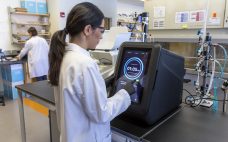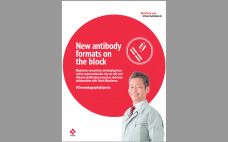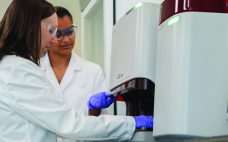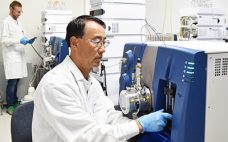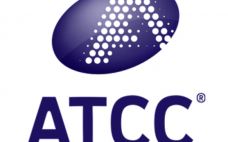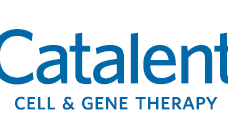This webcast features: Graziella Piras, Segment Marketing Director, Bioprocessing, Marketing, 908 Devices Cell culture media analysis is a critical piece of the bioprocessing puzzle. From starting material and throughout the growth cycle, cell culture media analysis gives you a clearer, fuller picture of how amino acids, vitamins, and biogenic amines impact cell health and productivity. This Ask the Expert session will outline two of the key applications of cell media analysis in the production of biologics: media quality control (QC)…
Sponsored Content
New Antibody Formats on the Block:
More Complex Modalities Demand Innovation in Manufacturing and Purification
Some of the latest, most promising therapeutic developments in the biologics industry use antibody fragments — either separate functional subunits of antibodies or recombinant molecules that are composed of immunoglobulin domains. The most popular fragments are antigen-binding fragments (Fabs), variable single-chain fragments (scFvs), diabodies, and nanobodies. Such molecules raise several advantages over their parent molecules for upstream production but pose several challenges for downstream purification. To facilitate antibody-fragment capture, Tosoh Bioscience has developed Toyopearl AF-rProtein L-650F resin. Its ligand uses…
Biosimilar Structural Comparison of Commercially Sourced Reference Standards by MMS Rapidly Detects Subtle but Critical Differences to Correctly Predict Activity for Use in an ELISA Product
It was determined that many of the Bovine Serum Albumin (BSA) reference candidates did not exhibit acceptable activity after inclusion into the final product though all purchased samples shared the same name and identification. The inconsistency in activity causes delays, increases cost of manufacture, and adds an element of variability. Current in-house biophysical techniques fail to correctly identify the inactive candidates prior to product inclusion due to inconclusive results or a lack of sensitivity. Thus a more accurate, reliable analytical…
How Eurofins Applies Rapid Methods to Support Autologous Cell Therapies
Autologous Cell Therapies are an advancement in personalized medicine using a person’s own cells to effectively treat a disease. Due to the immediate nature required for returning the cells to patients, rapid biosafety testing approaches must be utilized to demonstrate the cells have not been contaminated during cellular processing. Eurofins BioPharma Product Testing provides GMP-validated biosafety assays to test for the presence of microbial, mycoplasma, and endotoxin contaminations in less than half the time of the traditional methods. Eurofins’ GMP…
High-Yield AAV Viral Vector Production in Corning Ascent Fixed-Bed Reactor System
Gene therapies hold great promise for one-time treatments that alleviate or cure certain genetic conditions. Recombinant adenoassociated viral (AAV) and lentiviral vectors have emerged as leading gene delivery methods for in vivo and ex vivo gene therapies, respectively. With more than 500 gene therapy clinical trials underway, the industry needs scalable, cost-efficient viral vector manufacturing. To address those needs, Corning developed the Ascent fixed-bed bioreactor system for scalable, high-density, adherent cell culture, including high-yield viral vector manufacturing. The Ascent fixed-bed…
Model-Based Process Monitoring of Algae Cultures Using eve Software
In bioreactor processes, the on-line monitoring of key parameters relies on the use of adequate sensors. In this article, we implement model-based software sensors to monitor nitrate concentrations in an algae batch process. Nitrate concentration is a crucial component in algae growth, and its assessment is used to achieve optimal growth conditions or to determine optimal harvest times. Batch cultivation of the algae Chlamydomonas reinhardtii is carried out in a Labfors 5 airlift photobioreactor provided by INFORS-HT. By means of…
PendoTECH Sensors and Industry 4.0: Integrating a PendoTECH Single-Use Sensor System with a Digital Highway
Biopharmaceutical manufacturing is evolving with the progression of Industry 4.0. Industry 4.0 refers to the ongoing “fourth industrial revolution,” which is transforming modern manufacturing and production practices through the use of “smart” technology. This is appealing especially to the biopharmaceutical industry, where production can be a long, meticulous, complex process, and optimizing manufacturing procedures is critical for success. As a leading supplier of single-use technology for the biopharmaceutical industry, PendoTECH recently has explored how its products can be integrated easily…
High Virus-Titer–Producing Cell Lines for Bioproduction
Antiviral vaccines are essential for preventing epidemic disease. However, production of them often is limited by low-yielding manufacturing processes. Similarly, the development of gene therapies is constrained during the production of adenoassociated virus (AAV) delivery platforms for gene transfer. To address the need for efficient viral synthesis to quicken the pace of bioproduction, ATCC used CRISPR/Cas9 genome-editing technology to develop STAT1 and BAX knockout (STAT1 BAX KO) cell lines to produce high-titer viral stocks. Three cell lines optimized for virus…
28 Years of Experience Developing and Manufacturing Biopharmaceuticals
Avid Bioservices, Inc. is a full-service, dedicated contract development and manufacturing organization (CDMO) focused on biopharmaceutical drug substances derived from mammalian cell culture. Avid’s services include process development and current good manufacturing practice (CGMP) clinical and commercial drug-substance manufacturing, bulk packaging, release and stability testing, and regulatory submissions support. For early stage programs, the company provides process development activities such as upstream and downstream development and optimization, pilot-scale manufacturing, analytical methods development, and testing and characterization. Avid has 28 years…
Partnering with Innovators: From Raw Materials to Commercial-Ready Processes
Advancements in life sciences technologies and the increasing demands for improved, effective, and innovative products to prevent, treat, and in some cases, cure diseases have focused the attention of drug developers on new modalities such as mRNA-, DNA-, viral vector-, and cell-based therapies and vaccines. Novel biopharmaceutical products bring a level of complexity to developing and bringing them through design, clinical studies, and to the market. Like traditional drug products, complex therapies require robust, scalable manufacturing processes, a reliable quality-driven…

